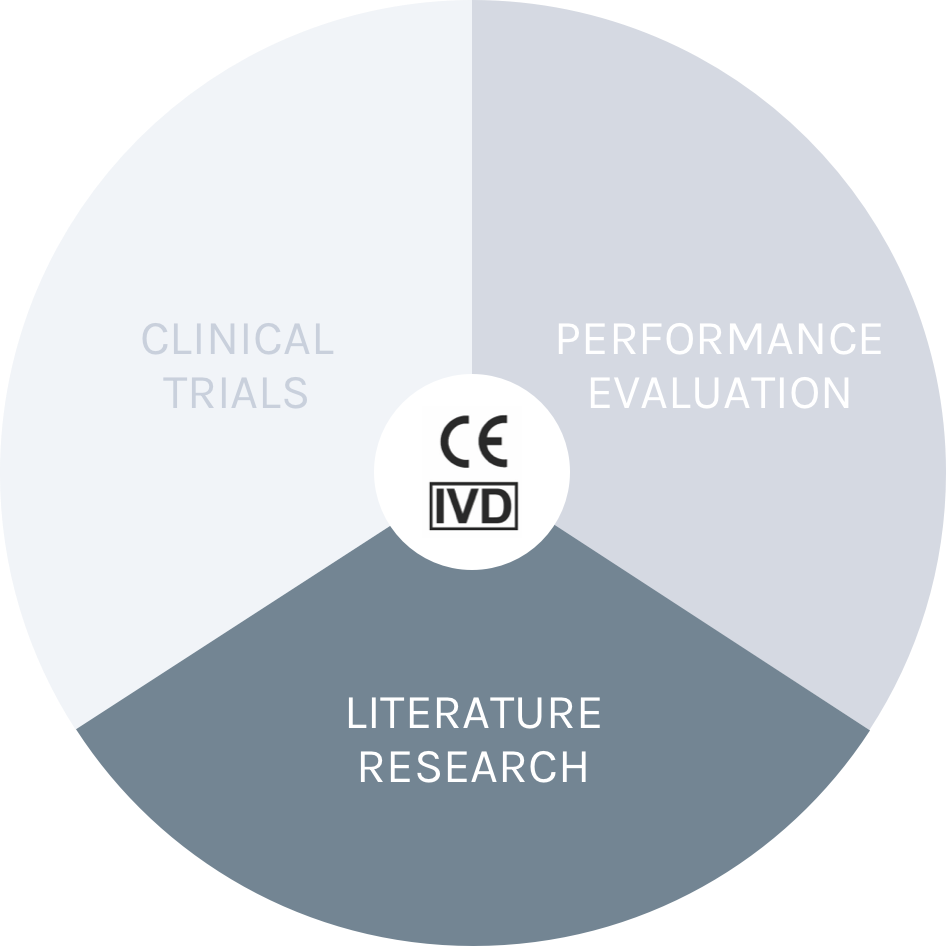Literature Research
Systematic reviews of peer-reviewed data must consider, compile and report not only third-party peer-reviewed clinical information, but also technical, scientific and safety information from the technical family of products in use in the target population. This depends on the IVD test’s type of technology and on the clinical risk its application by user and the intended use entails.
IndiTreat® tests are cutting-edge among state-of the art 3D microtumor testing technology (organoids and tumoroids) in human cancers. Over 40 individual publications have been selected and described in detail. A recent review paper by Wensink et al. (2021) [3] has provided a pooled analysis of results regarding the use of patient-derived 3D microtumors in individualized tumor response testing, focusing on peer-reviewed evidence for analytical validity, clinical validity and clinical utility. Using 3D microtumors, predictive drug sensitivity results were obtained in clinical settings for 5-FU, FOLFOX and FOLFIRI, regorafenib and TAS102. There is no literature data on the clinical predictiveness of the treatment FOLFOXIRI, but FOLFOXIRI is a combination of FOLFOX and FOLFIRI.
Wensink et al. concluded that there is strong evidence that a large number of colorectal cancer patients show a correlation between drug
sensitivity screen results and systemic therapy.
References
[3] Wensink et al.; npj Precision Oncology (2021) 5:30 ; doi.org/10.1038/s41698-021-00168-1
